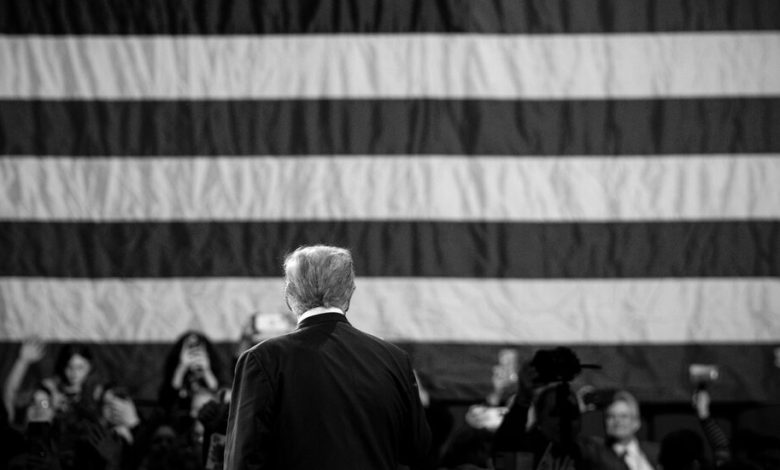Trump’s Conquest of the Republican Party Matters to Every American

With Donald Trump’s victories on Tuesday, he has moved to the cusp of securing the 1,215 delegates necessary to win the Republican Party’s presidential nomination. The rest is a formality. The party has become a vessel for the fulfillment of Mr. Trump’s ambitions, and he will almost certainly be its standard-bearer for a third time.
This is a tragedy for the Republican Party and for the country it purports to serve.
In a healthy democracy, political parties are organizations devoted to electing politicians who share a set of values and policy goals. They operate part of the machinery of politics, working with elected officials and civil servants to make elections happen. Members air their differences within the party to strengthen and sharpen its positions. In America’s two-party democracy, Republicans and Democrats have regularly traded places in the White House and shared power in Congress in a system that has been stable for more than a century.
The Republican Party is forsaking all of those responsibilities and instead has become an organization whose goal is the election of one person at the expense of anything else, including integrity, principle, policy and patriotism. As an individual, Mr. Trump has demonstrated a contempt for the Constitution and the rule of law that makes him unfit to hold office. But when an entire political party, particularly one of the two main parties in a country as powerful as the United States, turns into an instrument of that person and his most dangerous ideas, the damage affects everyone.
Mr. Trump’s ability to solidify control of the Republican Party and to quickly defeat his challengers for the nomination owes partly to the fervor of a bedrock of supporters who have delivered substantial victories for him in nearly every primary contest so far. Perhaps his most important advantage, however, is that there are few remaining leaders in the Republican Party who seem willing to stand up for an alternative vision of the party’s future. Those who continue to openly oppose him are, overwhelmingly, those who have left office. Some have said they feared speaking out because they faced threats of violence and retribution.
In a traditional presidential primary contest, victory signals a democratic mandate, in which the winner enjoys popular legitimacy, conferred by the party’s voters, but also accepts that defeated rivals and their competing views have a place within the party. Mr. Trump no longer does, having used the primary contest as a tool for purging the party of dissent. The Republican candidates who have dropped out of the race have had to either demonstrate their devotion to him or risk being shunned. His last rival, Nikki Haley, is a Republican leader with a conservative track record going back decades who served in Mr. Trump’s cabinet in his first term. He has now cast her out. “She’s essentially a Democrat,” the former president said the day before her loss in South Carolina. “I think she should probably switch parties.”
Without a sufficient number of Republicans holding positions of power who have shown that they will serve the Constitution and the American people before the president, the country takes an enormous risk. Some of the Republicans who are no longer welcome — such as Adam Kinzinger, Liz Cheney and Mitt Romney — tried to hold their party’s leader accountable to his basic duty to uphold the law. Without such leaders, the Republican Party also loses the capacity to avoid decisions that can hurt its supporters. John McCain, for example, voted to save Obamacare because his party had not come up with an alternative and millions of people otherwise would have lost their health coverage.





